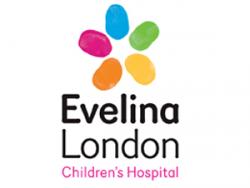The Evelina London Children’s Hospital, Guy’s and St Thomas’ NHS Foundation Trust, London has begun recruiting subjects with late infantile CLN2 disease, a form of Batten disease, for a clinical trial. The trial will examine whether BMN190, an experimental drug, is safe for these children and whether it can change the progression of the fatal neurodegenerative disease. The clinical trial is sponsored by BioMarin Pharmaceutical Inc., Novato, California, USA.
After years of caring for patients with Batten Disease and researching the nature of the disease, doctors at Evelina London Children’s Hospital, can offer an experimental treatment as part of this study.
The Batten Disease Family Association (BDFA) have a crucial role in supporting families to take part in this trial. Andrea West, BDFA Chief Executive has said: “This is a hugely important step in Batten disease research and represents a crucial milestone for those families living with the disease both in the UK and worldwide. The BDFA is very proud to be working with Dr Ruth Williams, the team at the Evelina and BioMarin to bring this important work to London.”
Children with CLN2 disease are healthy and develop normally for the first few years of life. Towards the end of the second year, developmental progress may start to slow down. Some children are slow to talk. The first definite sign of the disease is usually epilepsy. Seizures may be drops, vacant spells or motor seizures with violent jerking of the limbs and loss of consciousness. Seizures may be controlled by medicines for several months but always recur, becoming difficult to control. Children tend to become unsteady on their feet with frequent falls and gradually skills such as walking, playing and speech are lost. Children become less able and gradually skills such as walking, playing and speech are lost. Children become less able, and increasingly dependent. By 4-5 years the children usually have myoclonic jerks of their limbs and head nods. They may have difficulties sleeping and become distressed around this time, often for no obvious reason. Vision is gradually lost. By the age of 6 years, most will be completely dependent on families and carers for all of their daily needs. They may need a feeding tube and their arms and legs may become stilff. Some children get frequent chest infections. Death usually occurs between the ages of 6 and 12 years (but occasionally later).
CLN2 disease is caused by mutations in the CLN2 gene. CLN2 normally directs production of a lysosomal enzyme called tripeptidyl peptidase1 or TPP1. A deficiency of TPP1 results in abnormal storage of proteins and lipids in neurons and other cells and impaired cellular function. The cells cannot function as they should and symptoms develop. BMN190 is a recombinant human form of TPP1 enzyme, the enzyme deficient in patients with CLN2 disease.
The Phase 1/2 study sponsored by BioMarin is an open-label, dose-escalation study in patients with late infantile CLN2 disease. The primary objectives are to evaluate the safety and tolerability of BMN 190 and to evaluate effectiveness using a disease specific rating scale score in comparison with natural history data after 48 weeks of treatment. Secondary objectives are to evaluate the impact of treatment on brain atrophy in comparison with natural history after 48 weeks of treatment and to characterize pharmacokinetics and immunogenicity. The study will enroll approximately 22 subjects for a treatment duration of 48 weeks.
For more information about the trial and if you have any questions please contact:
Drs Ruth Williams and Ming Lim, the Trial Team on 0207188 3998 or by emailing CLN2@gstt.nhs.uk.
Andrea West, BDFA, 01252 416110 andreawest@bdfa-uk.org.uk
Related Links
http://www.guysandstthomas.nhs.uk/research/studies/paediatrics.aspx#na

